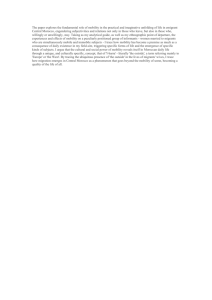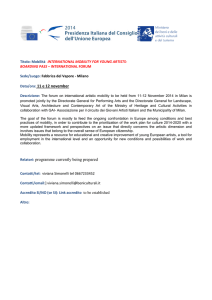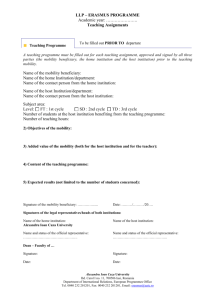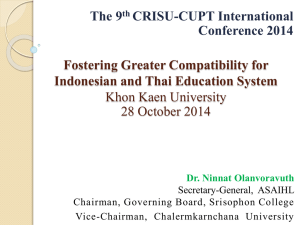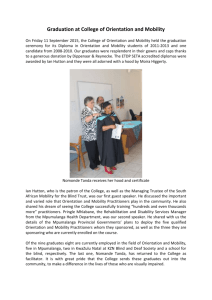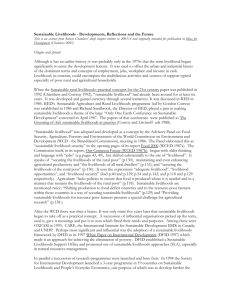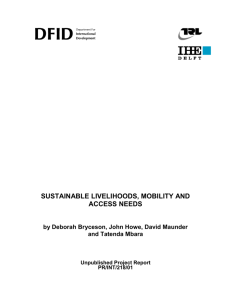Call for Papers `Learning, Livelihoods and Social Mobility
advertisement
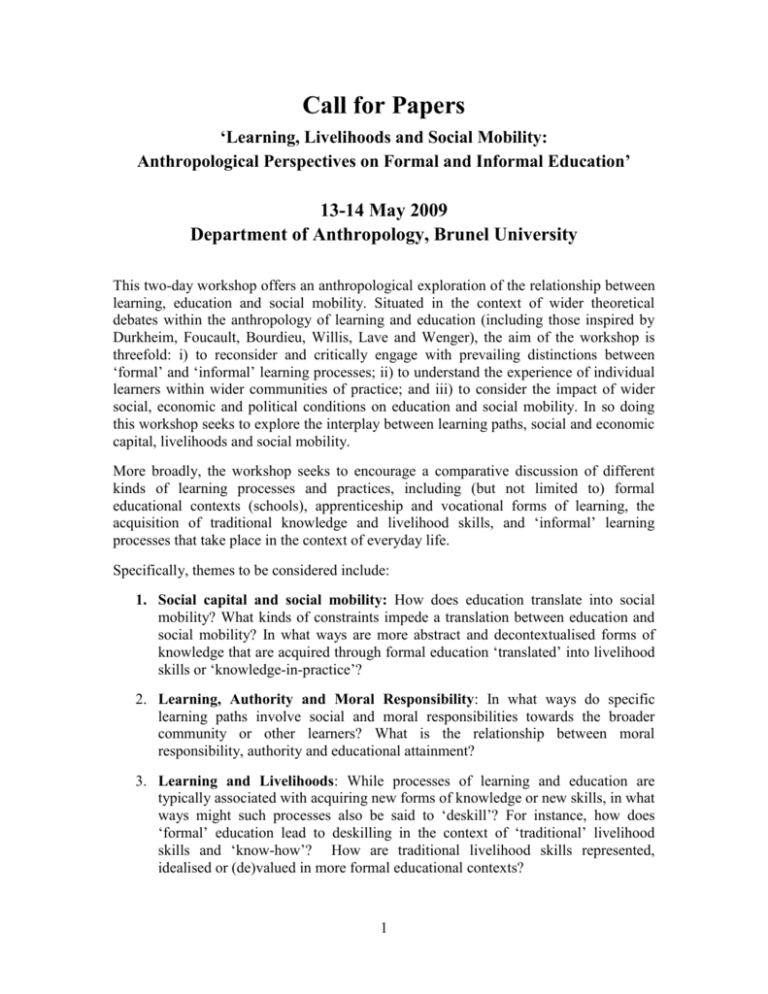
Call for Papers ‘Learning, Livelihoods and Social Mobility: Anthropological Perspectives on Formal and Informal Education’ 13-14 May 2009 Department of Anthropology, Brunel University This two-day workshop offers an anthropological exploration of the relationship between learning, education and social mobility. Situated in the context of wider theoretical debates within the anthropology of learning and education (including those inspired by Durkheim, Foucault, Bourdieu, Willis, Lave and Wenger), the aim of the workshop is threefold: i) to reconsider and critically engage with prevailing distinctions between ‘formal’ and ‘informal’ learning processes; ii) to understand the experience of individual learners within wider communities of practice; and iii) to consider the impact of wider social, economic and political conditions on education and social mobility. In so doing this workshop seeks to explore the interplay between learning paths, social and economic capital, livelihoods and social mobility. More broadly, the workshop seeks to encourage a comparative discussion of different kinds of learning processes and practices, including (but not limited to) formal educational contexts (schools), apprenticeship and vocational forms of learning, the acquisition of traditional knowledge and livelihood skills, and ‘informal’ learning processes that take place in the context of everyday life. Specifically, themes to be considered include: 1. Social capital and social mobility: How does education translate into social mobility? What kinds of constraints impede a translation between education and social mobility? In what ways are more abstract and decontextualised forms of knowledge that are acquired through formal education ‘translated’ into livelihood skills or ‘knowledge-in-practice’? 2. Learning, Authority and Moral Responsibility: In what ways do specific learning paths involve social and moral responsibilities towards the broader community or other learners? What is the relationship between moral responsibility, authority and educational attainment? 3. Learning and Livelihoods: While processes of learning and education are typically associated with acquiring new forms of knowledge or new skills, in what ways might such processes also be said to ‘deskill’? For instance, how does ‘formal’ education lead to deskilling in the context of ‘traditional’ livelihood skills and ‘know-how’? How are traditional livelihood skills represented, idealised or (de)valued in more formal educational contexts? 1 4. Modernity, development and globalization: How do processes of modernity and globalization affect existing learning paths? In what ways do (real or perceived) processes of modernity and discourses of ‘development’ lead to new learning practices? How do such processes impact upon the relationship between education and social mobility? 5. Learning and Language: How is language learning in formal and informal contexts implicated in ideas of identity and modernity, and how does languagecompetence translate into educational possibility and social capital? 6. Progress, Improvement and the ‘Educational Good’: What cultural and historical assumptions underlie the notion of the ‘educational good’? How does such an ‘ideal’ translate into the reality of livelihoods, and how are ideas of personal and collective ‘improvement’ and ‘development’ implicated in the shaping of social subjects? Abstracts are invited from scholars at all stages of their career. Contributions (which consider one or more aspects of the above themes) are invited from a variety of ethnographic and geographical contexts, as are contributions concerning different types of learning paths and stages of learning. Please submit a 250 word abstract by 5 January 2009 to: anna.portisch@brunel.ac.uk or peggy.froerer@brunel.ac.uk. Travel funding for paper givers is available. 2
